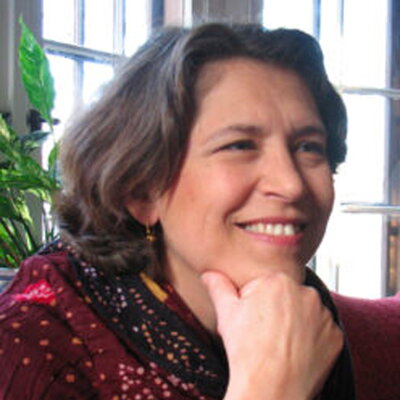
D. Fairchild Ruggles, Director

An historian of Islamic architecture and landscape, Dr. Ruggles’ research examines the built environment of the Islamic Mediterranean and South Asia, the complex interrelationship of Islamic culture with Christianity, Judaism, and Hinduism, and the ways that religion and culture are often conflated in the study of these. In addition to numerous edited volumes on the topics of cultural heritage, gender, and visual theory, she is the author of two award-winning books on garden history: Gardens, Landscape, and Vision in the Palaces of Islamic Spain (2000), and Islamic Gardens and Landscapes (2008). In 2020 her Tree of Pearls: The Extraordinary Architectural Patronage of the 13th-Century Slave-Queen Shajar al-Durr won ASOR’s Nancy Lapp book prize. Her most recent work is Islamicate Environments: Water, Land, Plants, and Society, a study that connects agricultural practices and hydraulic technologies to systems of measurement and justice and concludes with a critique of the concept of a hydraulic society (Cambridge University Press, 2025). At UIUC she holds the Presidential Chair in Humanities and Social Science.
Taisuke L. Wakabayashi, Research Assistant

Taisuke is a PhD Candidate in Landscape Architecture (History & Theory) at the University of Illinois Urbana-Champaign. His research explores the role of modern and contemporary design thinking in the emergence of nuclear landscapes. Drawing on New Materialism, he examines these landscapes as sites of co-production between humans and nuclear technology, shaped by military experiments, infrastructural projects, atomic disasters, and radioactive waste disposal. His doctoral thesis delineates four forms of nuclear landscapes in Japan and the U.S., theorizing how we have been, are, and will be forming relationships with nuclear matters, material agencies, and technological complexities.Tai is a recipient of the Doctoral Degree Acquisition Fellowship (2024-2027) from the Japanese Student Service Organization of the Ministry of Education, Culture, Sports, Science, and Technology. He has also received the Nicholson Fellowship (2024) for a certification in Criticism and Theory at Cornell University, along with other research grants including the Pauline Tilton Kennedy Prize (2023) and Edward L. Ryerson Travelling Award (2022). He has worked as a teaching assistant for theory and history courses in both Architecture and Landscape Architecture.
Jamie Keener, Research Assistant

Jamie is a PhD Candidate in the English Department and the Program in Medieval Studies. Her research is in Premodern Race and Ethnic Studies and, more specifically, the ways that mixed race studies intersects with depictions of fairy to define boundaries of the non/human in Middle English romance. Her research interests also include Cultural Studies, materiality, and Orientalism in the Global Middle Ages. She is further interested in exploring interdisciplinarity, the public humanities, and playful pedagogy. To this end, she co-organizes semesterly film screenings, accompanied by discussions of medievalisms, with Medieval Movie Knights, which is open to anyone in the Champaign-Urbana community. In 2024, she co-organized and co-chaired the Unit symposium “Theorizing Premodern Alterity and Racial Rhetorics.”